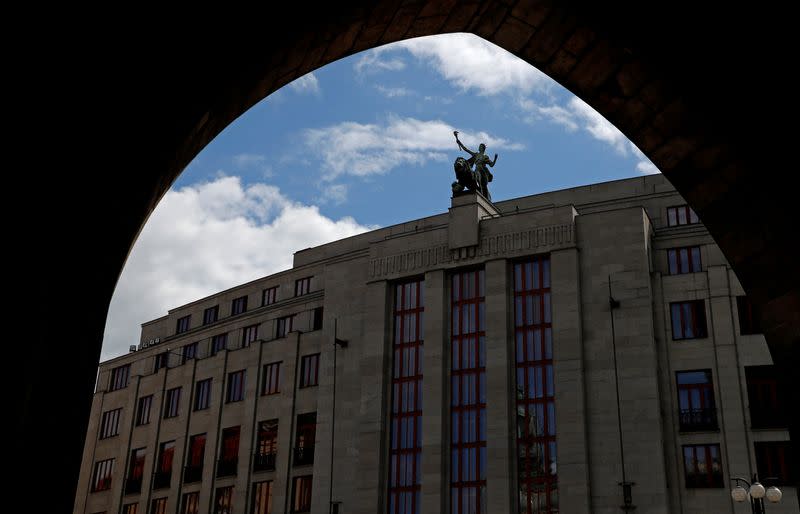Analysis-EU-beating wage gains unnerve central Europe's rate-setters

By Gergely Szakacs and Karol Badohal
BUDAPEST/WARSAW (Reuters) - Double-digit wage rises far outpacing average growth rates in the European Union have raised alarm among central Europe's monetary policymakers wary of a rebound in inflation as the region's economic recovery gains traction.
The Czech National Bank is likely to slow the pace of rate cuts when it meets on Thursday as wage growth and consumer demand raise inflation risks, following a shift down in the pace of easing by Hungary's central bank last week.
Inflation across central Europe, where prices rocketed after Russia's 2022 invasion of neighbouring Ukraine and slammed the brakes on economic growth, slumped at the start of the year, allowing central banks to normalise monetary policy.
But now, strong wage growth in some of the EU's tightest labour markets poses a key upside risk to inflation levels, with central banks tempering expectations for further rate cuts and borrowing costs still far exceeding levels before the pandemic.
Growth in first-quarter hourly wage costs ranged from an annual 16.4% in Romania to 5.9% in the Czech Republic based on Eurostat data released last week, exceeding an average 5.5% in the EU and 5.1% in the euro zone.
Polish wage costs jumped 14.1% in the first quarter, among the highest in the EU, amid steep hikes in the minimum wage, which lifted it above levels in euro zone members Portugal and Greece in January.
Large public sector wage hikes by Prime Minister Donald Tusk's ruling coalition have also fuelled wage growth in central Europe's largest economy as Tusk's pro-EU cabinet seeks to deliver on campaign pledges.
"What is happening with wages is very alarming," Polish rate-setter Ludwik Kotecki said earlier this month, reflecting policy makers' wider concerns over wage growth, which the bank has said is a major risk to the inflation outlook.
Kotecki said he had proposed that the central bank tightens monetary policy without raising interest rates, which he said could harm the bank's credibility after 100 bps worth of cuts ahead of a national election last year.
He did not give any details on the proposal.
The European Commission forecasts Polish inflation to be little changed at 4.2% next year, the EU's highest level and a fifth year of price growth exceeding the National Bank of Poland's policy target of 2.5% plus or minus one percentage point.
Even in the Czech Republic, which is set to run inflation on par with euro zone levels just above 2% this year and next, the European Commission has said wage growth was the main risk to the inflation outlook amid a recovery in real wages.
Czech central bank vice governor Eva Zamrazilova told Reuters last week she was not overly concerned by first-quarter wage growth, while high services prices posed a risk, and that she would decide between a 25-bp and a 50-bp cut this week.
"Still-elevated headline inflation and rising momentum in it, combined with the stronger-than-projected final consumption and wage growth, are the main arguments for a more cautious 25bp rate cut," Morgan Stanley economist Georgi Deyanov said.
The National Bank of Hungary, which lowered its main rate by just 25 bps to 7% last week, the smallest cut in a 14-month easing cycle totalling 1,100 bps, has also cited wage rises as an upside threat to inflation.
In Romania, the EU's fastest rise in wage costs and the government's loose fiscal stance have prevented cuts from its 7% key rate, which alongside Hungary's is the highest benchmark in the bloc.
Romania's minimum wage, among the EU's lowest, has posted the steepest average increase in the bloc over the past ten years based on Eurostat data, with another 12.1% hike taking effect from July.
(Additional reporting by Luiza Ilie in BUCHAREST; Editing by Bernadette Baum)

 Yahoo Finance
Yahoo Finance 